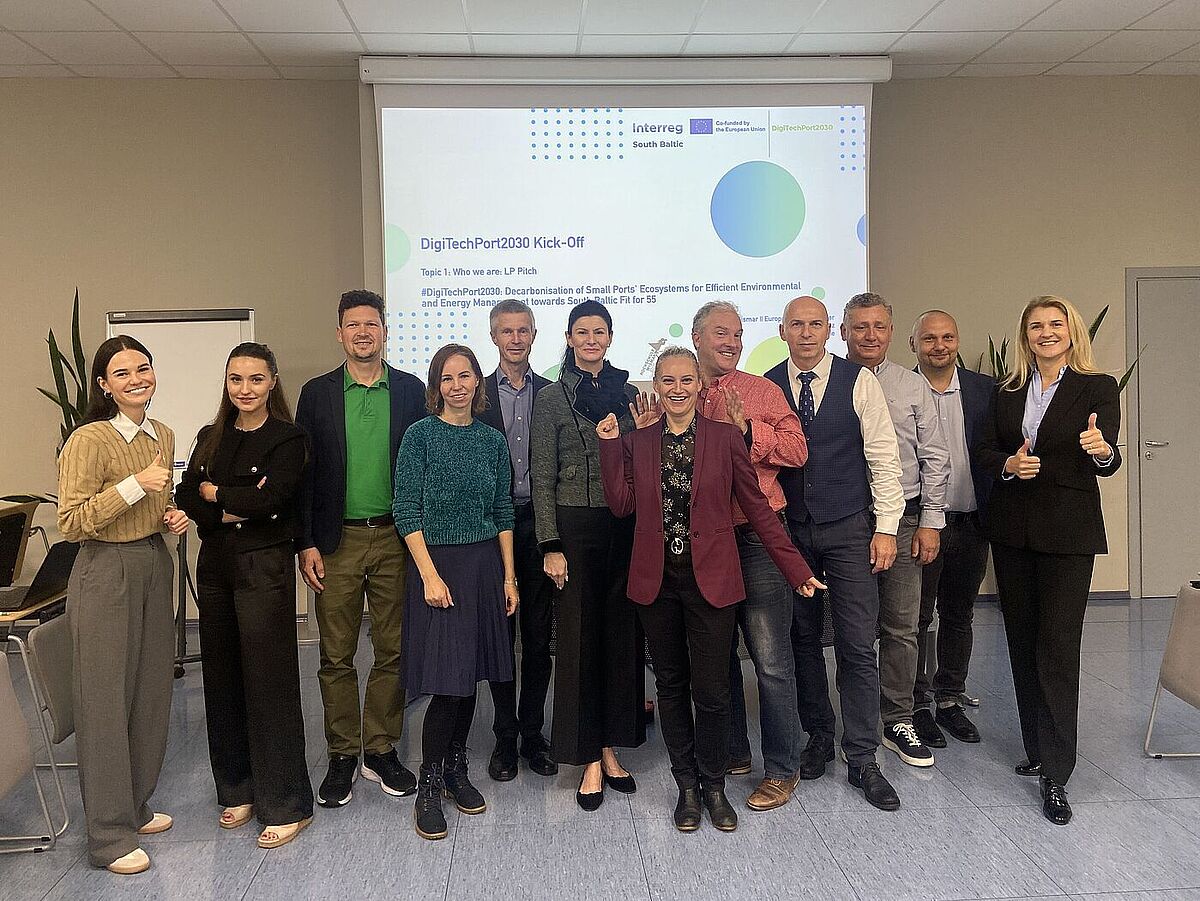Once again, the EPC at Wismar University of Applied Sciences is the coordinator of the network with 8 other partners from the neighbouring countries. While Connect2SmallPorts focused on the digitalisation of these ports, the focus is now shifting to the decarbonisation of port ecosystems, i.e. not just the port as a static unit but in its entirety as an element with various connections to the outside world - economically, ecologically and also socially. This project is driven by current European guidelines such as the European Green Deal or Fit for 55, which are forcing the entire maritime industry to decarbonise current processes and contribute to reducing emissions.
The port industry faces a growing dilemma between increasing obstacles and challenges in daily operations, e.g. rising energy prices or uncertain logistics chains, but at the same time political pressure to make its operations more environmentally friendly, sustainable and resilient. This pressure is driven to a large extent by the introduction of new regulations that set the path for port development, in particular the European Green Deal and the IMO's "Fit for 55" legislation, which sets important targets for 2030 and 2050, such as a significant 55 per cent reduction in greenhouse gas emissions by 2030 compared to 2015.

